From lifesaving first aid in Cyprus to Black Sea drills and fisheries enforcement in the Central Mediterranean, August showcased vigilance, partnership and practical results – on land, at sea, and in the air – always anchored in European law, values, and fundamental rights. It was a month where operational readiness met community spirit, and where training, technology, and teamwork translated directly into safer borders and safer lives.
News
Last Month in the Field – August
2025-09-12
“Diplomats” denied: fake identities stopped at Tabanovce
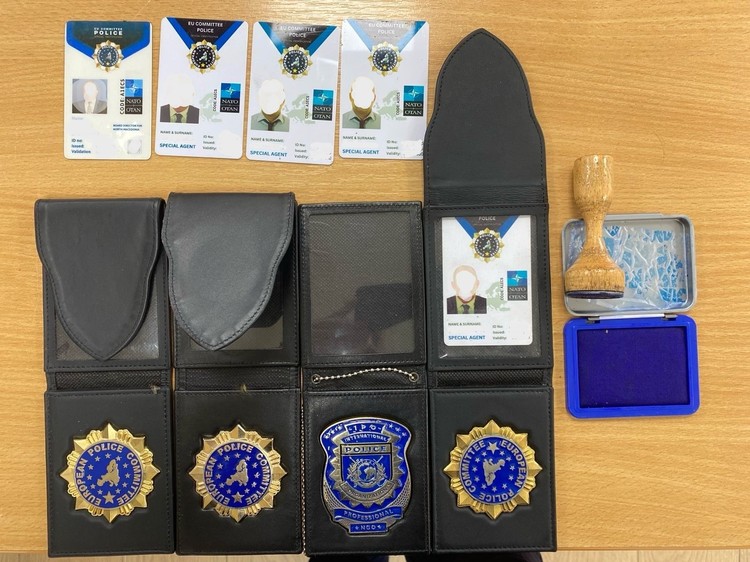
Working with authorities in North Macedonia, Frontex officers intercepted two travellers posing as diplomats at the Tabanovce border crossing, preventing them from exploiting false status to bypass checks. The encounter underscores how frontline officers combine document expertise with behavioural observation to stop identity fraud before it reaches the EU’s external borders.
A full inspection uncovered:
- Multiple counterfeit passports
- Forged identity documents
- Bogus “official” accreditation cards
It wasn’t a film set, it was Europe’s border, and the “final stamp” belonged to the officers who stopped fraudsters from entering the EU. Diligent screening, close cooperation with national services, and fast information-sharing remain central to deterring similar attempts.
Hands across borders: with Lithuania’s Border Guard
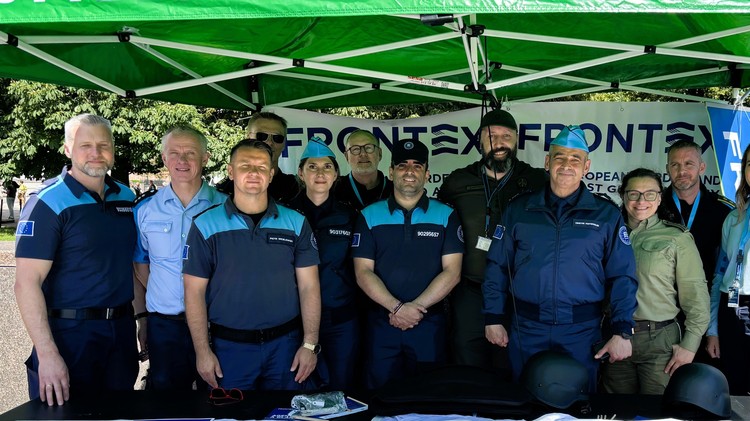
During the 105th anniversary of the Lithuanian State Border Guard Service, Frontex officers connected with local residents across Lithuania in a setting that went far beyond a display of equipment. The day highlighted shared values, mutual respect, and the everyday cooperation that keeps borders safe, with conversations that put people first and turned technical work into a community story. Warm wishes to our colleagues at Valstybės sienos apsaugos tarnyba as we continue to learn from each other and serve together.
Sharpening skills in the Baltics: stolen vehicles & document fraud
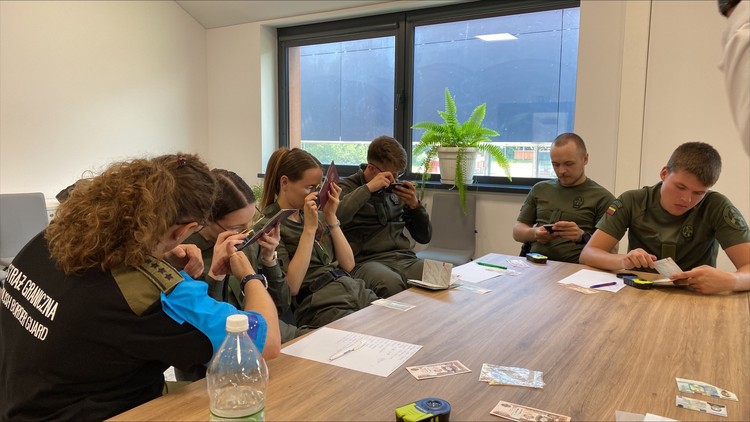
Lithuanian and Latvian border guards completed Frontex-led training focused on identifying stolen vehicles and detecting forged documents through realistic scenarios and expert instruction. Participants practised step-by-step checks, from systematic vehicle inspections to advanced document verification, strengthening the habits that turn procedures into reliable results.
Summer travel tips to share:
- Keep vehicle documents secure, but accessible, and avoid leaving them unattended in parked cars
- Ensure registration and insurance are current and carry proof with you
- Be cautious about sharing documents or personal data with strangers or unofficial “helpers”
- Stay on top of recalls and maintenance; safe, well-maintained vehicles are harder targets for criminals
Community first: support for the Cyprus Red Cross
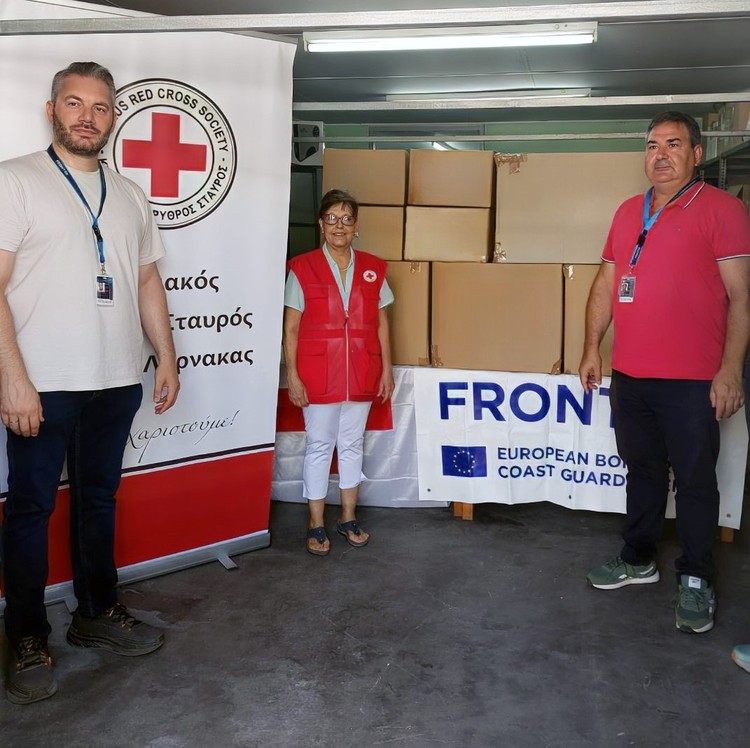
Colleagues in Cyprus organised a donation drive for the Cyprus Red Cross Society: timed just after the Limassol fires increased local needs and strained community resources. The contribution of clothing, daily necessities, and toys for children drew heartfelt thanks from the Red Cross President: “The timing couldn’t have been more meaningful.” The initiative reflects how our teams look beyond the checkpoint, supporting the people we serve and strengthening trust in difficult moments.
A big thank-you to the FRESO (Frontex Return Escort and Support Officers) Team in Larnaca for translating compassion into concrete help, and for showing that small, human gestures can build durable connections where it matters.
Callatis 2025: Romania’s flagship maritime exercises
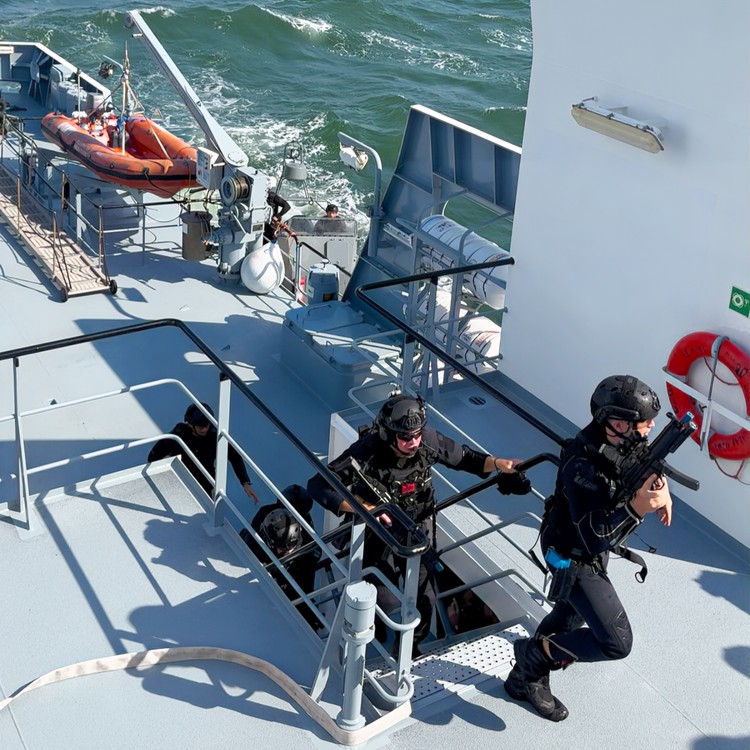
Frontex joined Romania’s Multipurpose Maritime Exercise (MME) Callatis 2025 for the third time. In this edition with a first: Frontex officers deployed as crew members on a Maltese patrol boat. Hosted by the Poliția de Frontieră Română in the port city of Mangalia, the exercise focused on real-world challenges: search and rescue, boarding operations, and coordinated response at sea, while testing procedures and inter-operability that are essential during fast-moving incidents.
What stood out:
- Integration at sea with mixed crews that learn and operate together
- Galileo satellite-powered tracking used to enrich the maritime picture
- Recognition of outstanding officers whose leadership elevates team performance
Professionalism, hospitality, and EU solidarity were raised another notch, with lessons captured for direct use in ongoing maritime operations.
Off-duty courage: rescue on a Spanish beach
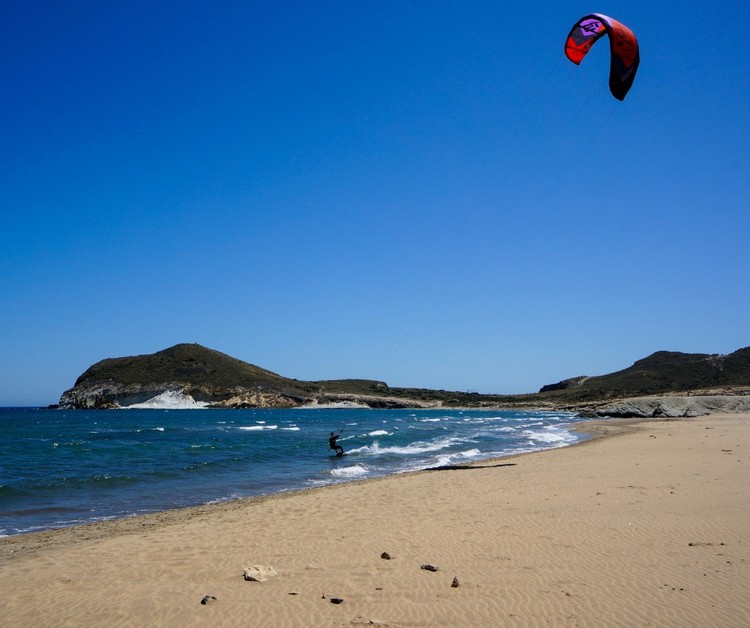
When a kitesurfer’s rope snapped and she struggled to stay afloat, Frontex officer Thomas didn’t hesitate to act. He quickly assessed the conditions, coordinated with people on shore and entered the water to bring her safely back to land, demonstrating the same judgment and determination he brings to his duty at Frontex.
“I am not a hero. I was only performing my duties as a policeman and a person. I would do it again anytime” – he said. The incident could have ended in tragedy; instead, it became a testament to readiness, calm under pressure, and the instinct to protect, uniform or not.
Protecting the Mediterranean’s resources: quick coordination, real impact
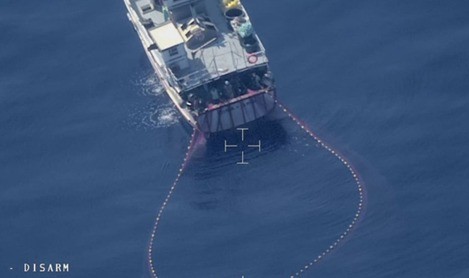
In the last week of August, close teamwork between Frontex, the European Fisheries Control Agency (EFCA), and Maltese authorities stopped a foreign vessel fishing illegally for dolphinfish in the Central Mediterranean. EFCA’s early-morning alert reached the Frontex Operations Centre; within moments, a surveillance aircraft was dispatched, the vessel was flagged, and the case documented to support follow-up action.
The aircraft returned to its regular duties shortly thereafter – evidence that well-rehearsed coordination protects both the rule of law and the sea’s resources while keeping assets available for the next task at hand.
The seconds that saved a little girl’s life: Larnaca Airport, Cyprus
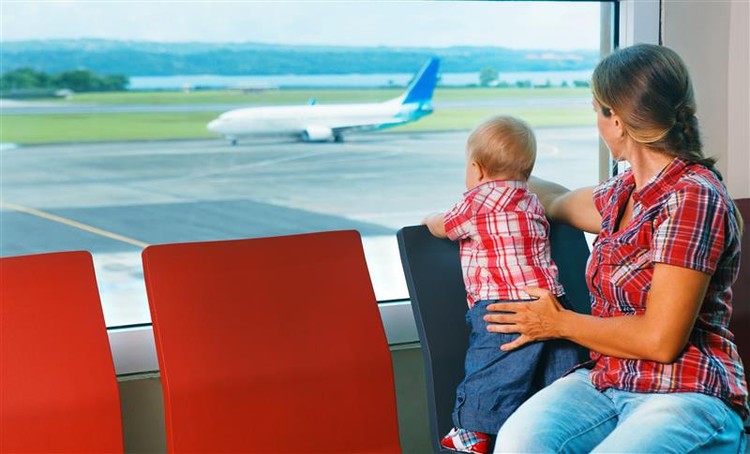
A mother sprinted through arrivals with her 9-month-old baby, limp and not breathing, while bystanders called for help and security cleared space in the corridor. Ricardo, a Frontex officer on duty, saw the panic and reacted instantly, recognising that in a medical emergency every second counts and composure matters as much as speed.
“The most shocking thing was the colour of her face and lips, turning purple. I immediately thought of my own children. I told myself, ‘She must survive,’” he recalled, describing the urgency that guided his actions, and the calm focus he worked to maintain.
Drawing on his emergency medical training provided by Frontex, Ricardo teamed up with an ED nurse practitioner from Cardiff and Vale University Health Board who happened to be passing through security on holiday. Together, they cleared and maintained the baby’s airway, coordinated with airport responders and kept the mother informed as the situation stabilised. The cause: a seizure brought on by a dangerously high fever: a silent threat that can escalate quickly in infants. Moments later, the child was breathing again and her colour returned.
One trained officer. One decisive response. A life saved, and a reminder of why first-aid skills, regular refreshers, and inter-service cooperation are embedded in our operational culture wherever we deploy.